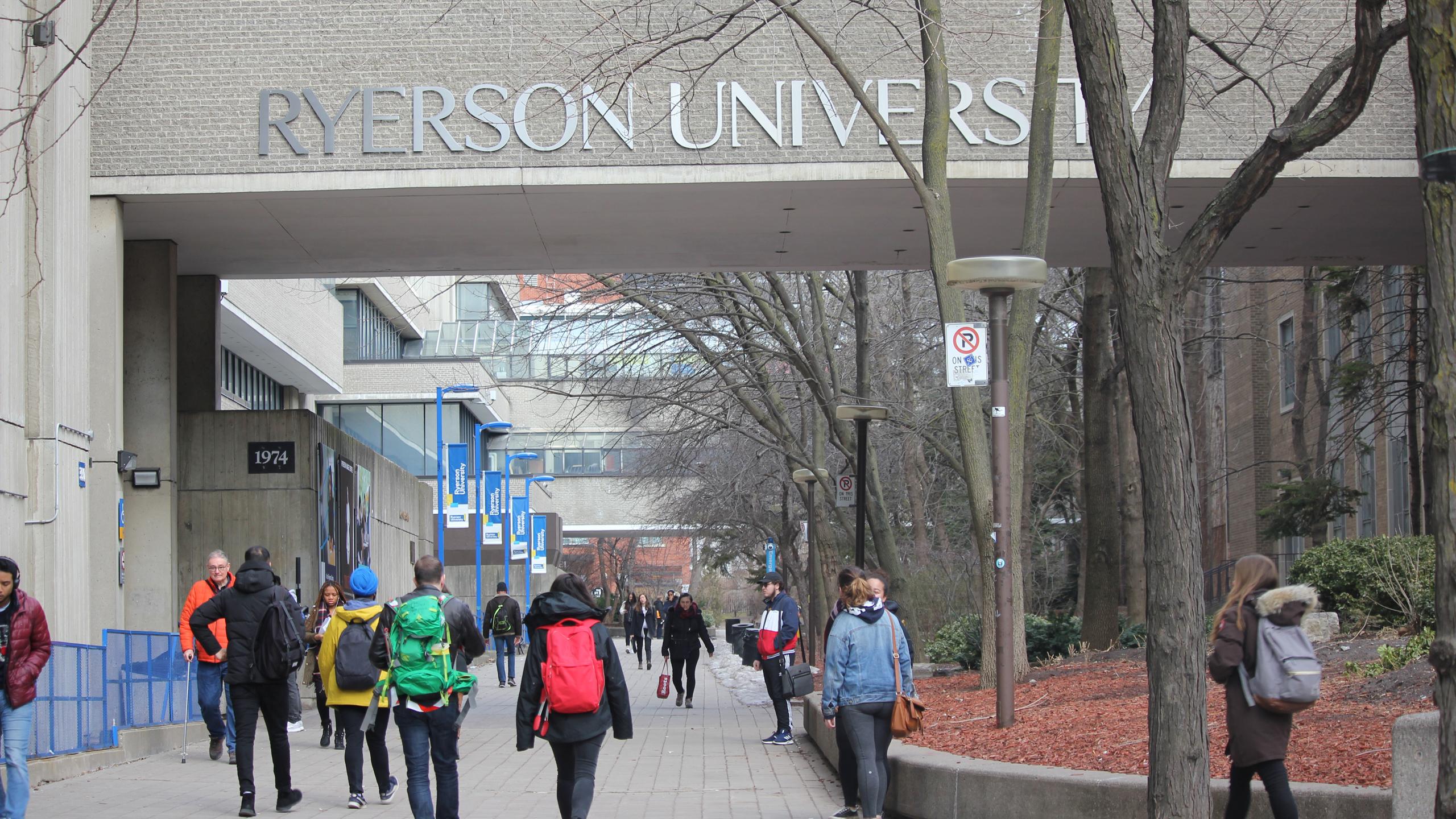By David Jardine
Ever since Ryerson University announced fall 2021 would be a hybrid semester with a gradual return to in-person instruction and activities, students have been voicing their excitement for the end of the unnecessarily long virtual hellscape. Three weeks of classes, however, has already been enough for many to realize in-person education is just as terrible.
First-year engineering student Ian Somnia said he was looking forward to attending his first on-campus class, an 8 a.m tutorial.
“I’m so excited to be back in person and not in my bedroom where I’ll fall asleep,” he said. “Having a separation between your home and workspace makes such a difference.”
However, students in his tutorial reported that Somnia was snoring audibly and appeared to be in the REM, or rapid eye movement, cycle of sleep by 8:30 a.m.
A group of students sitting in a hallway in the Daphne Cockwell Complex hastily shoving Starbucks cake pops in their mouths said they forgot they couldn’t bring food into their labs.
“I’m only in second-year so I didn’t even know food wasn’t allowed inside the lab,” said Fresha Munn, a nursing student who has only ever taken university classes online.
“I used to have the TTC closure schedule memorized. Today I got lost transferring from the green line to the blue line”
Most classes do allow students to eat in them, but even that brings its own troubles; fourth-year engineering student Rube Goldberg said they’d forgotten what eating in a lecture hall was like.
“I brought my bagel and coffee, but the tables are so small and unstable that I spilled the coffee on the floor five minutes into the lecture when I tried to open my laptop,” Goldberg said. “I don’t know what I’m gonna do, because I’ve already meal-prepped this coffee for the rest of the week.”
Another student, first-year business management student Marky Mark, described an embarrassing first-day-back experience.
“I took my phone out in the middle of the lecture to watch a livestream of the lemurs at the Toronto Zoo because I already knew about the topic we were discussing,” explained Mark. “Then the professor called me out in front of the whole class and told me to put my phone away.”
Technology bans have persisted this semester across many programs, despite the heavy reliance on tech as an educational tool for the past three semesters. The Eyeopener caught up with history professor Bronty Soros on his way to his museum studies course to ask if he would still be upholding his anti-electronic device policy, which included laptops and tablets.
“Absolutely, though I don’t know why anyone would try to bring a tablet and chisel to class,” he said, with a classic obnoxious-history-professor grin.
Many students are forgetting, or have never even experienced, the many quirks and expectations of in-person university lectures.
A recent survey conducted by school-run newspaper On the Record found more than 75 per cent of students said they had to awkwardly get up after the lecture started to grab one of the DSQ tray tables, and 100 per cent of respondents said the tray tables were as completely useless as the tables.
Third-year biology student Aima Snitch said they saw at least three students picking their noses in the middle of the lecture. “They clearly forgot they were in a room with others and not at home with their cameras off,” Snitch said.
One of the alleged nose-pickers agreed to speak to The Eye on condition of anonymity: “I don’t even remember starting, I’ve just picked my nose in all my lectures for a year,” they said. “I can’t help it now; I’ve conditioned myself to do it whenever I hear a prof speak.”
As a largely commuter school, TTC and GO delays have also become a daily worry for many students again. “I used to have the TTC closure schedule memorized.” said Kustoma Suhveez, a third-year hospitality and tourism student. “Today I got lost transferring from the green line to the yellow line at Bloor-Yonge.”
In a statement to The Eye, the university said it’s aware of the difficulties students are facing in this transitional fall semester.
“We know students have been away for a long time, or haven’t even set foot on campus before,” the statement read. “That’s why president Mohamed Lachemi is proud to announce that he’s seriously thinking about doing something about this issue, no matter what that may or may not take.”
When asked for more details on what exactly Lachemi intends to do (or not do), the university replied: “We have forwarded your email to our task force on replying to emails. Please expect a response within two to 90 days.”













Leave a Reply